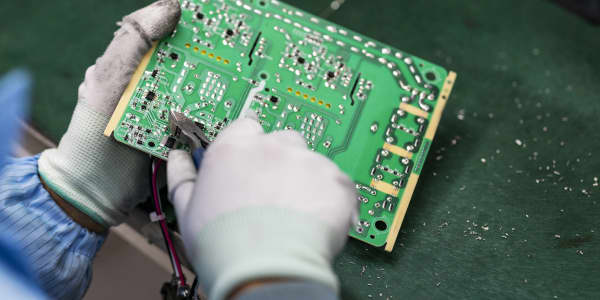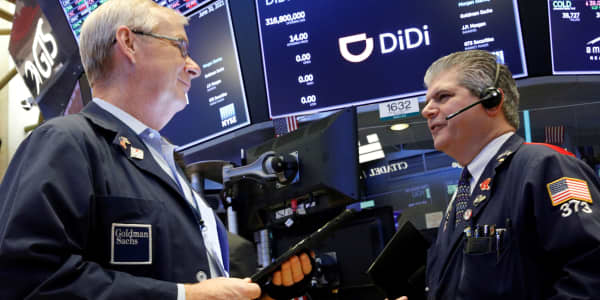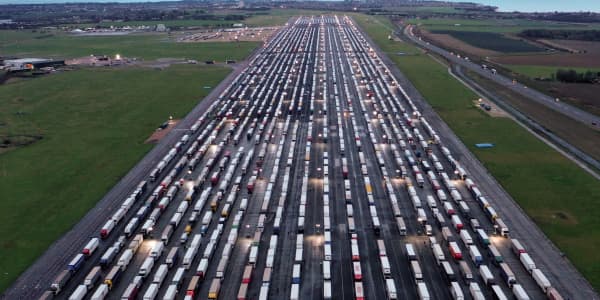Even amid a slowing Chinese economy and ongoing political unrest in Hong Kong, there are still many business and investment opportunities in the country's Greater Bay Area, said Xiao Wunan, executive vice chairman of the China-backed Asia Pacific Exchange and Cooperation Foundation (APECF).
The Guangdong-Hong Kong-Macau Greater Bay Area is made up of nine Chinese cities in Guangdong province and two special administrative territories, Hong Kong and Macau.
At the East Tech West conference in the Nansha district of Guangzhou, China, Xiao told CNBC in Mandarin, that the Greater Bay Area is not only serving Guangdong province but it is an integral economic, historical and political part of China.
He added that the region has always been a "window" for China to the outside world and vice versa. Historically, Guangdong has always been a port of entry and a big trading hub. And while Nansha is a leading innovative area in the province, he said there are many more opportunities and beyond the district as well.
China's economic transition
Beijing has said the Chinese economy has been undergoing a supply side reform for many years now, and Xiao said that during the transition, the economy "will suffer some short-term pain."
He pointed out that, "especially for conventional sectors and labor intensive industries, and there will be pressure to push for stricter environmental protection regulations," according to CNBC's translation.
Xiao, who used to work in the Chinese government, said the country's continued heavy reliance on manufacturing will be "unsustainable," and on top of that China is faced with an aging population.
Therefore, a "transition is inevitable, it's a must," said Xiao.
He added that the timing of the transition is the key to success. Across sectors, Xiao said innovation and efficiency are vital for the Chinese economy to transition smoothly.
Hong Kong unrest
The APECF executive told CNBC that "looking back at history in the past 1,000 years, I don't think that the short-term chaos in Hong Kong would really have a huge impact on the Greater Bay Area."
In fact, he said that he thinks "once the conflict settles, the future of Hong Kong will be supported by many policies. It will be supported by stronger and more favorable policies by the government. And I think the Greater Bay Area will have Hong Kong's support in the future."





